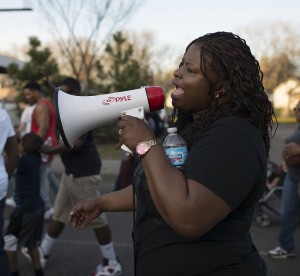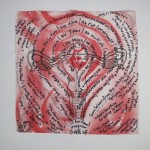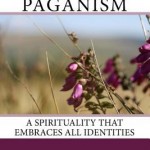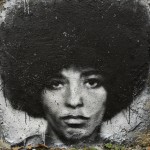
We are all immersed in the racist discourse and systemic racism that is endemic in our society. Even the most progressive people occasionally come out with some crass comment (I’ve done it myself). Even the most progressive people are, however unwillingly, complicit in the way society denies basic rights to people of colour.*
However, there are different levels or degrees of racism.
There are people who are actively working to unlearn racism. These are the people who show up in support of Black Lives Matter, campaign against deportation and immigrant detention centres, read Michelle Alexander and Ta-Nehisi Coates, and generally seek to amplify Black, Asian, and indigenous voices.*
Then there are people who believe they are not racist because they don’t say certain words, but they are actually propping up systemic racism by their denial. These are the people who just want Black people to be quiet and not rock the boat. These people are really not helping.
There are people who deny that racism exists, because race is a social construct. Well yes, racism is a social construct, but that doesn’t mean it doesn’t have massively harmful consequences.
Then there are people who actively express racist ideas and stereotypes, but would deny being racist. They uncritically absorb the racist narratives and stereotypes peddled by right-wing media, and repeat them in conversation and on social media.
Then there are people who are unashamedly racist, who think that the “white race is being persecuted”, and actively promote racism and racist ideology. At one time, the term racism meant a belief in the idea that races were biologically distinct. Now it means “power plus prejudice” (the power is conferred by the weight of systemic oppression).
And then there are those who are actual white supremacists, who actually think that the white race is superior and all that sort of rubbish. These are the kind of people who actually join extreme white supremacist groups.
There is a spectrum from the least racist to the most racist types, and of course they are all unhelpful, but some are actively harmful.
I wonder if part of the problem when someone gets called out for racism is that they could be being called out for any one of these distinct types – but everyone associates the term racist with the most extreme type of racism.
People also get very confused between racism on an interpersonal level, and systemic racism, which is the entire system of oppression throughout social structures such as the courts, the police, the schools, the prison system, and so on.
Could it be time to introduce some qualifying adjectives to indicate what level of racism we are actually talking about when we call someone out for racism?
Views of racism in the Pagan community
In the Pagan community, there is a wide spectrum of views about race and racism. I am so proud that so many people in the Pagan community have stepped up to support Black Lives Matter, indigenous rights, and migrant rights.
But we urgently need to engage with those who still can’t see the weight of oppression that is crushing minority communities, who can’t see the connection between oppression, poverty, and the sheer desperation that gives rise to crime in marginalised communities.
If you are one of the people who can’t see those connections, may I recommend reading Like Water by T Thorn Coyle. As well as being a great insight into systemic racism, it is one of the most uplifting books I have ever read. It is an exploration of human nature and building loving and beloved community as much as an evocation of a life and the ripples of love and connection that someone leaves behind them.
I would also highly recommend reading Bringing Race to the Table: Exploring Racism in the Pagan Community, edited by Crystal Blanton, Taylor Ellwood, and Brandy Williams. It has chapters by a number of well-respected Pagan authors, exploring racism and responses to racism.
* preferred terminology varies between the UK and the US and elsewhere.
















